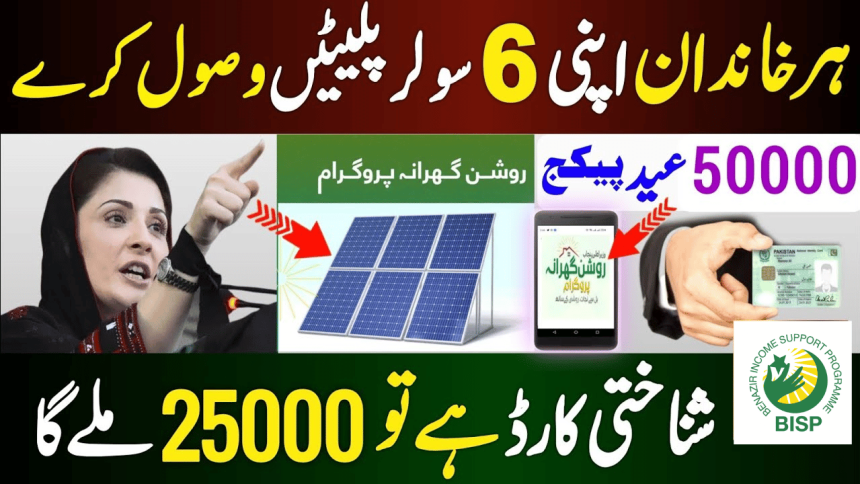In the wake of increasing environmental concerns and the need for sustainable energy solutions, governments around the world are turning to renewable energy sources to power homes and businesses. Among these initiatives is the Prime Minister’s Solar Scheme, a transformative program aimed at promoting solar energy adoption among households. This comprehensive guide delves into the various aspects of the scheme, outlining its objectives, benefits, eligibility criteria, application process, and the overall impact on homeowners and the environment.
The government subsidy for solar panels is a crucial component of the Prime Minister’s Solar Scheme, aimed at incentivizing homeowners to embrace renewable energy solutions. By offering financial assistance to offset the initial costs of solar panel installation, the government makes solar power more accessible and affordable for households across the country. This subsidy not only facilitates the transition to clean energy but also promotes energy independence and environmental sustainability. By leveraging solar energy, homeowners can reduce their reliance on conventional electricity sources, lower their energy bills, and contribute to mitigating climate change. Ultimately, the government subsidy for solar panels plays a pivotal role in driving the adoption of renewable energy technologies, fostering economic growth, and advancing the nation’s energy objectives.
Objective of the Scheme
The primary objective of the Prime Minister’s Solar Scheme is to incentivize the widespread adoption of solar power among households. By offering subsidies for the installation of solar panels, the scheme aims to make solar energy more accessible and affordable to homeowners across the nation. In doing so, it seeks to reduce reliance on conventional energy sources, lower electricity bills, mitigate carbon emissions, and contribute to the transition towards a cleaner and more sustainable energy future.
Benefits of Solar Energy Adoption
- Cost Savings: Solar energy enables homeowners to generate their electricity, thereby reducing their dependence on grid-supplied electricity and lowering their utility bills over time. With the rising costs of conventional energy sources, solar power offers a cost-effective alternative that can lead to significant long-term savings.
- Environmental Impact: Solar power is a clean and renewable energy source that produces no greenhouse gas emissions or air pollutants during operation. By harnessing solar energy, homeowners can significantly reduce their carbon footprint and contribute to mitigating climate change and environmental degradation.
- Energy Independence: Solar panels allow homeowners to generate their electricity, providing greater energy independence and resilience against fluctuations in energy prices or supply disruptions. This decentralization of power generation enhances energy security and stability at the household level.
- Economic Stimulus: The Prime Minister’s Solar Scheme stimulates economic growth by creating jobs in the solar energy sector, including installation, maintenance, and manufacturing. Moreover, it drives investments in renewable energy infrastructure and technology, fostering innovation and entrepreneurship in the clean energy industry. government subsidy for solar panels
Eligibility Criteria
To qualify for the Prime Minister’s Solar Scheme, homeowners must meet certain eligibility criteria, which may vary depending on the specific guidelines set forth by the government. Typical eligibility requirements may include:
- Ownership of Residential Property: Applicants must own the residential property where the solar panels will be installed. Renters or tenants may not be eligible unless they obtain permission from the property owner.
- Compliance with Building Regulations: The property must comply with local building regulations and zoning laws governing the installation of solar panels. Homeowners may need to obtain permits or approvals from relevant authorities before proceeding with the installation.
- Adequate Roof Space and Orientation: The property should have sufficient roof space and orientation to accommodate solar panels and maximize solar exposure for optimal energy generation. Factors such as roof pitch, shading, and obstructions may be taken into consideration during the assessment process.
- Financial Capacity: While the Prime Minister’s Solar Scheme offers subsidies to offset the cost of solar panel installation, homeowners may still be required to contribute a portion of the upfront costs. Therefore, applicants should have the financial capacity to cover any remaining expenses associated with the installation.
Application Process
The application process for government subsidy for solar panels the Prime Minister’s Solar Scheme typically involves the following steps:
- Pre-Assessment: Homeowners interested in participating in the scheme may undergo a pre-assessment to determine their eligibility and suitability for solar panel installation. This may involve an evaluation of the property’s roof space, orientation, shading, and energy consumption patterns.
- Selection of Installer: Once deemed eligible, homeowners can select an accredited solar panel installer to carry out the installation. It is recommended to choose a reputable installer with experience in solar energy systems and certification from relevant industry bodies.
- Submission of Application: Homeowners submit their application for the Prime Minister’s Solar Scheme, along with the necessary documentation, to the designated government authority overseeing the program. The application may include details such as property ownership, installation plans, cost estimates, and financing arrangements.
- Approval and Subsidy Disbursement: Upon approval of the application, homeowners receive confirmation of their eligibility for the scheme and the corresponding subsidy amount. The subsidy is typically disbursed directly to the installer or deducted from the total installation cost, reducing the financial burden on the homeowner.
Benefits for the Nation
- Economic Growth: The Prime Minister’s Solar Scheme stimulates economic growth by creating employment opportunities in the renewable energy sector. Investments in solar energy infrastructure, manufacturing, and installation drive innovation, technological advancements, and job creation, thereby bolstering the economy.
- Energy Security: Solar energy diversifies the energy mix and reduces dependence on imported fossil fuels, enhancing energy security and resilience. Distributed solar generation decentralizes power production, reducing strain on centralized grids and mitigating the risk of blackouts or energy shortages.
- Environmental Sustainability: By promoting the adoption of solar energy, the scheme contributes to achieving renewable energy targets and reducing greenhouse gas emissions. This aligns with the government’s commitment to environmental sustainability and combating climate change, positioning the nation as a leader in the global transition to clean energy.




